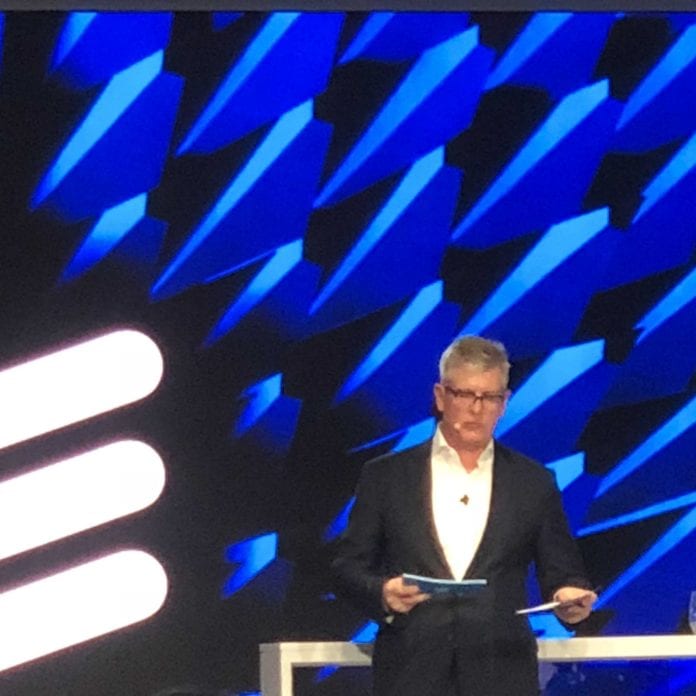Ericsson CEO says U.S. market is soft as Sprint/T-Mobile US merger delays 5G capex
Swedish network infrastructure vendor Ericsson on Jan. 24, reported fourth quarter 2019 financials and showed 4% year-over-year topline growth for full-year 2019 and 1% for the quarter. The company saw a bit of a drop in the U.S. market due to reduced capex from T-Mobile US as it awaits a go-ahead to merge with Sprint. But that was offset by growth in North East Asia and the Middle East, President and CEO Börje Ekholm said on a call with investors and financial analysts.
“The announced merger has impacted Q4 clearly,” Ekholm said, noting that regardless of the outcome, the “underlying need to invest in capacity hasn’t really changed. We believe that reduced uncertainty will actually lead to spending because there is a need to do that. The investments will vary depending on the outcome.”
Ekholm said Ericsson has 79 commercial 5G deals and 24 live networks. “And we see that we now win new contracts based on our leading technology. We continue to benefit from our strength and competitiveness.”
Company executives also discussed Ericsson’s acquisition of Kathrein, which resulted in a 14.5% reduction in Q4 operating margin. Ekholm said to expect it to take 12 to 18 months to return that portion of the business back to profitability.
The Kathrein acquisition was announced at Mobile World Congress Barcelona in 2019. Kathrein specializes in antennas and filters; Ericsson didn’t disclose the acquisition cost but said it’s a strategic move relative to market position for 5G. At the time, Ericsson said Kathrein “has a strong [research and development]organization with extensive experience in antenna design and research, coupled with a strong [intellectual property rights]portfolio. In addition to broadening Ericsson’s portfolio of antenna and filter products, the acquisition will bring vital competence for the evolution of advanced radio network products.”
On the earnings call, Ekholm said one issue following the acquisition was a lack of permits to operate Kathrein facilities. “We will always ensure the safety of the people working for us. We did not want to operate a facility without a fire permit. That’s one effect we had in Q4. We also see that Kathrein was impacted by uncertainty in the U.S. as well.”
He continued: “We expect to have a loss for the full year. We are investing in building a strong roadmap within antenna and within the bigger product offering. You will see us gradually improve. We’re establishing a very strong competitive position and competitive offering in antenna solutions. We think this is going to be even more important in the 5G world when we can offer fully-integrate site solutions.”

